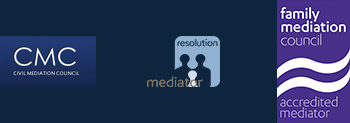There can be few events in people’s lives that are more traumatic and more distressing than divorce. At Hampshire Mediation we work with couples who are separating to try to make the process as straightforward as possible, building on issues which are common ground between the parties to develop sensible, workable and sustainable solutions to all the issues that accompany the end of a marriage, civil partnership or long term relationship. These will typically include arrangements for property, possessions, income and how any children of the separating couple will be looked after.
The arrangements for children are particularly important. The effect of divorce or separation on children can be enormous. They need reassurance and support throughout the process, and at the very time when their parents may be least able to give that support. The effect on them is only compounded if they see protracted argument between the parents, or if they start to feel that they are being used as a weapon or a bargaining chip. Working together in family mediation can ease some of the pressure, reduce the degree of acrimony and encourage cooperative working. All of this will reduce the effect of the divorce or separation.
Divorce is not only a traumatic business, it can also be an expensive one. Using mediation to resolve differences, work out how issues are going to be resolved and what future arrangements are going to be made will not only reduce the stress which is inevitably part of the process of divorce or separation, it will also help to keep the costs under control, something which will be important to both parties at what is always a time of financial stress.
Family mediation differs a little from other forms of mediation, but the principles are the same. It is still a voluntary and confidential process in which the two people involved arrive at a decision which is best for them and are assisted by an impartial mediator.
It begins with the completion of a simple form in which you describe your circumstances and once that is completed each party separately attends an initial assessment meeting at which you can discuss the situation and what you want to achieve from the separation process confidentially with the mediator. Usually each person attends this initial individual meeting alone, but you can bring a family member or friend if you so wish. It is also an opportunity for you to find out more about the mediation process and to decide whether or not it can help you.
You can download the Referral form here, and the Agreement to Mediate here.
After the assessment session, if both parties agree the mediation will begin at the next session. Typically there may be between 3 and 6 sessions, depending on what the participants want to discuss and on the complexity of the issues involved. When an agreement has been reached the mediator will draw up a formal Mediation Summary for the participants.
Our family practice is governed by the Code of Practice for Family Mediators published by the Family Mediation Council. You can download a copy of the code here.
The meetings take place at venues across Hampshire and the surrounding counties.


